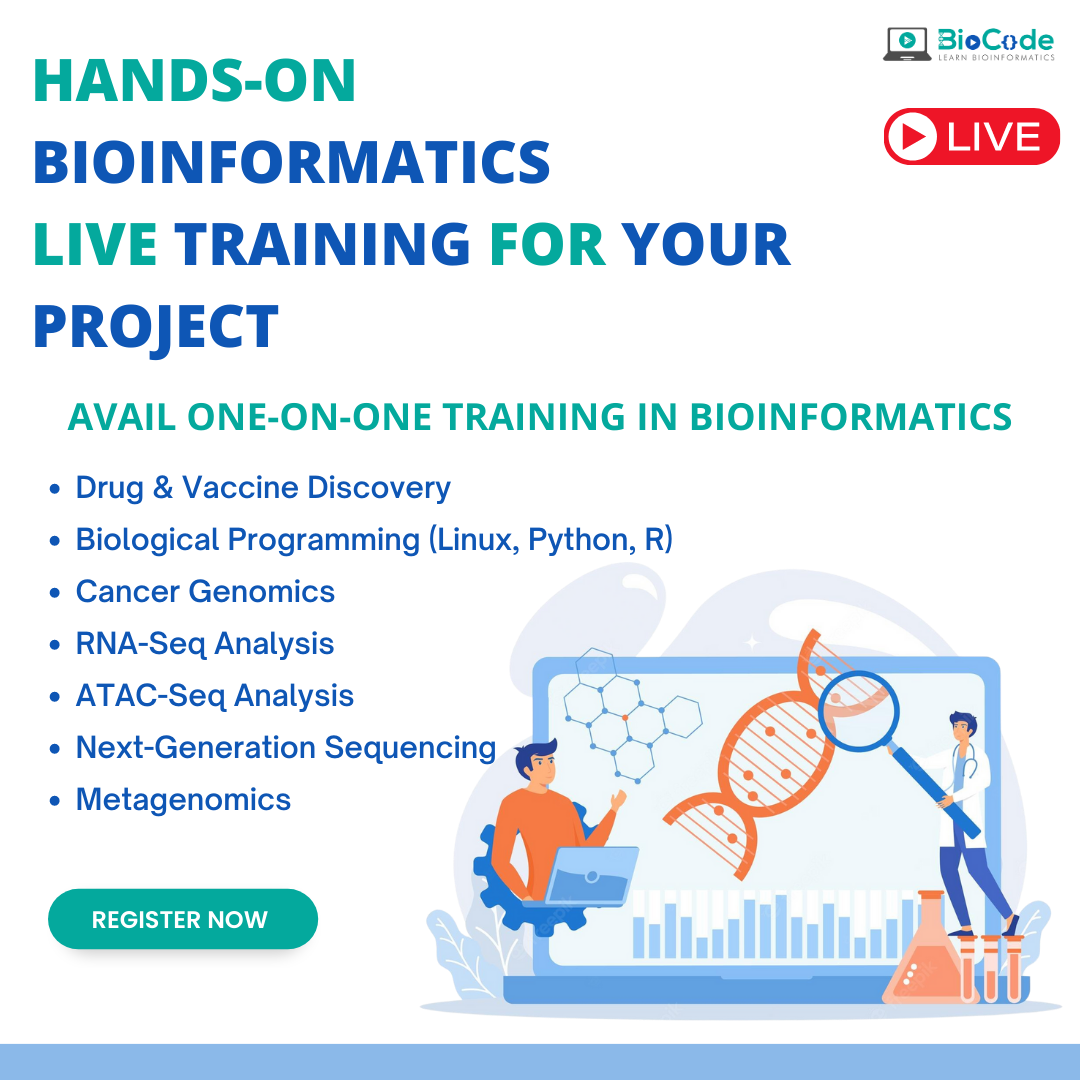The 9-Minute Rule for Bioinformatics Tutor
The 9-Minute Rule for Bioinformatics Tutor
Blog Article
Bioinformatics Tutor for Beginners
Table of Contents9 Easy Facts About Bioinformatics Tutor DescribedThe Ultimate Guide To Bioinformatics Tutor7 Simple Techniques For Bioinformatics TutorSome Ideas on Bioinformatics Tutor You Need To KnowBioinformatics Tutor Fundamentals Explained
Of the overall participants involved in the training, 80% were pupils from public higher education institutions, while the continuing to be 20% originated from personal organizations. To receive a certificate of participation, trainees were required to participate in at the very least 90% of the complete training hours. As a result of this need, an excellent 95% of the participants efficiently obtained their certifications, having not only met the minimum attendance requirements but likewise completed all appointed tasks throughout the training.
Throughout the height of the COVID-19 pandemic, particularly between June and August 2020, the job group was tasked with arranging specialized training in bioinformatics. This training was particularly focused on students from the research study group Center for Study in Applied Computing at the Federal College of Pará (UFRA) The adaptation to remote discovering platforms because of the pandemic created a chance to discover new training methodologies and electronic devices that enhanced both reach and efficiency.
This program was developed to provide an easily accessible yet comprehensive overview of Artificial Knowledge methods, especially as used in bioinformatics (Bioinformatics Tutor). This online format enabled engagement from trainees across Brazil, several of whom may not have had the opportunity to participate in in-person sessions.
Bioinformatics Tutor for Beginners
Approximately 50% of the overall training hours were devoted to sensible activities where trainees developed smart models and applications in a variety of clinical domain names, consisting of genetics, molecular biology, and environmental data evaluation. These systems made it possible for students to engage in real-time data control, version training, and algorithm experimentation.
Sixty of them were affiliated with numerous higher education organizations in the state of Pará, while the staying twenty came from institutions located in five other Brazilian states. By introducing Artificial Knowledge in a appropriate and functional context, the initiative served to bridge the space in between theory and real-world application, offering students with a solid foundation for future research or work in the field.
The training campaign formed component of a more comprehensive scholastic outreach initiative referred to as the Bioinformatics when driving task. This job has, for many years, presented lots of pupils to the world of bioinformatics and computational biology. The events held under this umbrella campaign have actually happened across multiple areas and years, as summarized in Table 1 (Checklist of events, places, years, and total varieties of students and instructors)
Several of these teams, initially brought with each other by their participation in training occasions, have actually since gone on to create independent scientific research in partnership with neighborhood academic organizations. The training not just cultivated scientific thinking within the context of bioinformatics yet also stimulated collaborative connections that expanded past the training environment.
Bioinformatics Tutor Fundamentals Explained
The exact same team, omitting IH and RR, additionally acted as tutors for the useful training modules. Funding for the task was provided via the grant 88887.200562/ 2018-00 from CAPES.
The Federal University of Pará's Workplace of Research study (PROPESP/UFPA) also provided financial backing, specifically for the manufacturing of the last manuscript. The authors proclaim no economic or industrial problems of passion that might have influenced the study. All viewpoints and interpretations revealed in this post are solely those of the writers and do not necessarily reflect those of their respective establishments, the publisher, editors, or customers entailed in the magazine procedure.
Bioinformatics Tutor Fundamentals Explained
From an instructional viewpoint, the training strategy used in the training was intentionally interactive. Classes were carried out in a fashion that encouraged pupil involvement and discussion, surpassing memorizing memorization to explore how ideas are established, used in every day life, and tested in scholastic setups. The training ideology focused on supporting both strong and having a hard time pupils, giving individualized assistance, and structure self-confidence through sustained mentorship and perseverance.

Each group, containing about 36 individuals, was supported by 3 coaches-- a lot of whom were postdoctoral scientists with specific knowledge. These mentors not just helped develop the team jobs however also facilitated their implementation, ensuring that each study concern was both appropriately difficult and pertinent. The objective was to supply a biologically sensible context that participants could discover through open-ended purposes and access to curated datasets.
For extra understandings right into the method and end results of this project-based discovering approach, visitors are directed to S1 Text, that includes detailed summaries of the instructional structure, evaluation techniques, and project motifs made use of in the training sessions.
The Best Strategy To Use For Bioinformatics Tutor
Of the overall individuals included in the training, 80% were trainees from public higher education and learning institutions, while the remaining 20% came from personal establishments. To qualify for a certificate browse around here of participation, trainees were needed to participate in at the very least 90% of the overall training hours. Notably, beyond the pupils who registered in the training sessions, seven experienced instructors took part in delivering the try this web-site courses, while three committed research study teachers coordinated the total training procedure. About 50% of the overall training hours were committed to functional tasks where pupils developed smart versions and applications in a variety of clinical domain names, consisting of genes, molecular biology, and environmental information analysis. The training not just promoted clinical reasoning within the context of bioinformatics yet also stimulated joint relationships that extended beyond the training setting.
Report this page